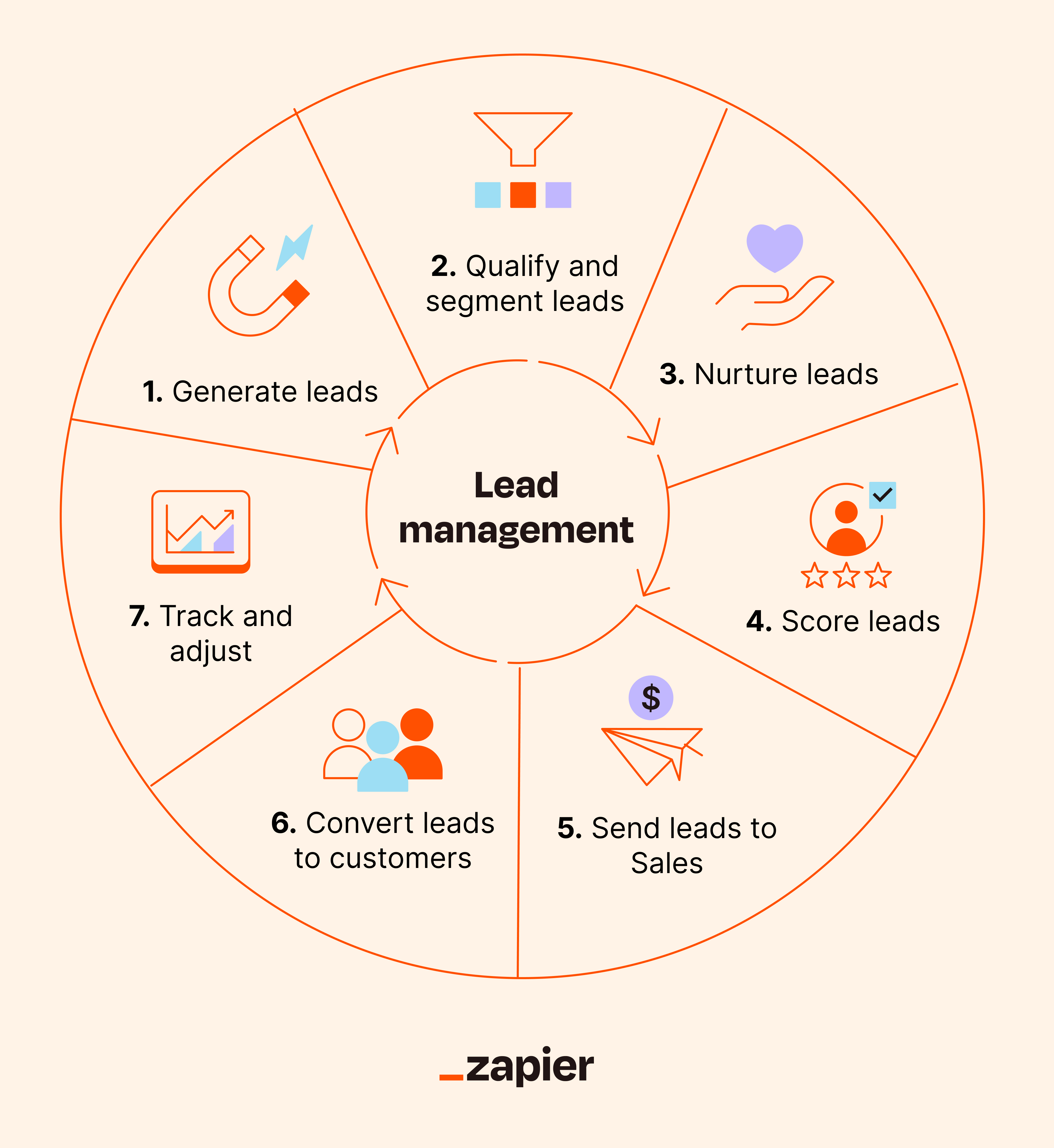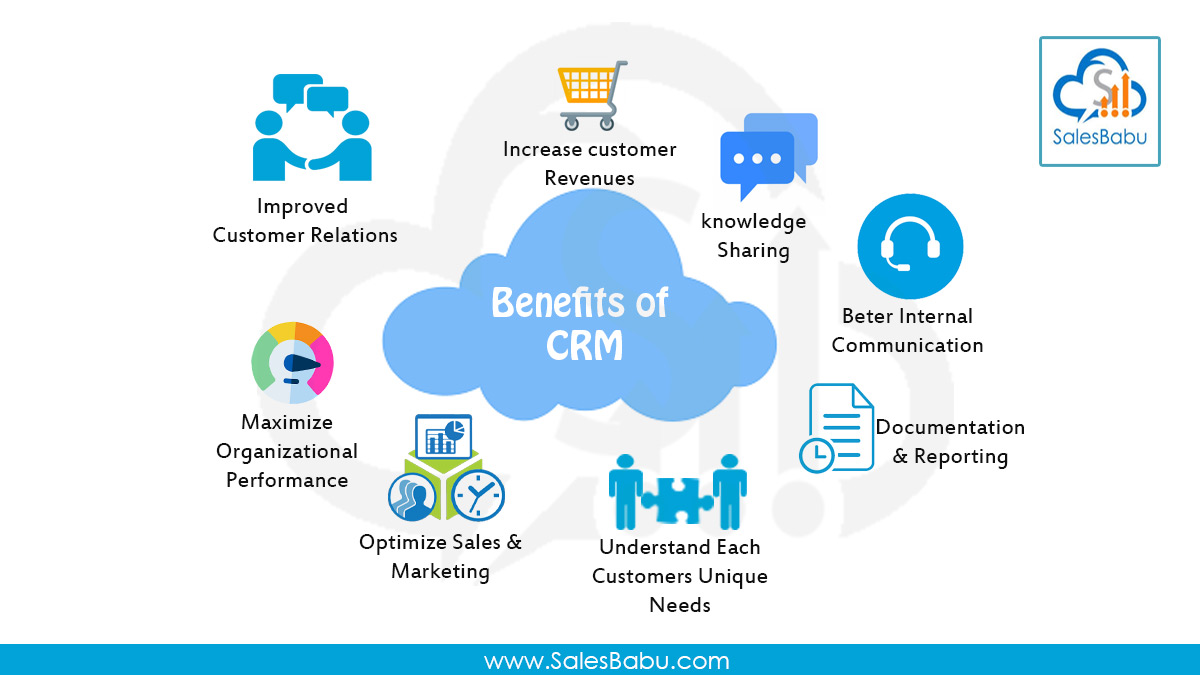Customer Relationship Management (CRM) is an indispensable tool in today’s competitive business landscape, offering a comprehensive approach to managing customer interactions and leads.
By centralizing data and streamlining processes, CRM systems enable businesses to enhance their lead management, from initial contact to conversion.
This article explores how CRM can significantly improve the effectiveness of lead management, ensuring that every potential customer is nurtured and converted efficiently. Discover the key features and strategies that make CRM an essential asset for any business looking to optimize its sales and marketing efforts.
How CRM Helps You Manage Leads Effectively
A Customer Relationship Management (CRM) system is a powerful tool that can significantly enhance your ability to manage leads effectively.
By centralizing all customer data, automating routine tasks, and providing real-time insights, a CRM helps you build stronger relationships with potential customers, improve your sales pipeline, and ultimately increase your conversion rates. Let’s explore how a CRM can help you manage leads more effectively.
Centralizing Lead Information for Clear Visibility
One of the key benefits of a CRM is its ability to centralize all lead information in one place. This means that every interaction with a lead, from initial contact to follow-up communications, is recorded and easily accessible.
This centralization ensures that your sales team has a comprehensive view of each lead’s history, preferences, and interactions, which is crucial for personalized and effective communication. With all data in one place, you can avoid duplication of efforts and ensure that every lead is handled with the same level of care and attention.
Automating Lead Nurturing and Follow-Up
Automated lead nurturing and follow-up processes are another significant advantage of using a CRM. By setting up automated workflows, you can ensure that leads are contacted at the right time with the right message. This not only saves time but also helps in maintaining consistent engagement with potential customers.
For example, you can set up automated emails to send personalized content to leads based on their behavior and interests. This consistent and timely communication can help move leads through the sales funnel more efficiently.
Providing Real-Time Insights and Analytics
A CRM system also provides real-time insights and analytics that can help you make data-driven decisions. You can track key metrics such as lead sources, conversion rates, and sales pipeline performance. These insights allow you to identify which strategies are working and which ones need improvement.
For instance, you can see which marketing campaigns are generating the most high-quality leads and adjust your efforts accordingly. This data-driven approach can significantly enhance your lead management effectiveness and overall business performance.
| Key Benefits of CRM in Lead Management |
|---|
| Centralizes all lead information for clear visibility |
| Automates lead nurturing and follow-up processes |
| Provides real-time insights and analytics |
What is the purpose of lead management in CRM?

The purpose of lead management in CRM (Customer Relationship Management) is to streamline and optimize the process of identifying, tracking, and nurturing potential customers or leads.
By efficiently managing leads, businesses can improve their sales cycles, enhance customer engagement, and ultimately increase their conversion rates.
Lead management in CRM involves several key activities, such as lead capture, lead scoring, lead nurturing, and lead distribution, all of which are designed to ensure that sales teams have the best possible opportunities to convert leads into customers.
Lead Capture and Tracking
Lead capture and tracking are fundamental aspects of lead management in CRM. This process involves collecting information about potential customers from various sources, such as website forms, social media, and marketing campaigns.
Once captured, leads are stored in the CRM system, where they can be tracked and monitored throughout the sales funnel. Effective lead capture and tracking help businesses stay organized and ensure that no potential customers are overlooked.
- Identifying Lead Sources: Knowing where leads are coming from helps in understanding which marketing efforts are most effective.
- Centralizing Lead Data: A CRM system centralizes lead data, making it easily accessible to sales and marketing teams.
- Real-Time Updates: Leads can be updated in real-time, allowing teams to respond quickly to changes in lead status.
Lead Scoring and Prioritization
Lead scoring is a method used in lead management to rank leads based on their perceived value or likelihood of converting into customers. This process involves assigning points to leads based on various criteria, such as demographics, behavior, and engagement levels.
By prioritizing high-value leads, sales teams can focus their efforts on the most promising opportunities, increasing the efficiency of the sales process.
- Improving Sales Efficiency: Sales teams can focus on leads with the highest potential, reducing time spent on less qualified prospects.
- Enhancing Targeted Marketing: Marketers can create more targeted campaigns based on the specific needs and behaviors of high-score leads.
- Reducing Lead Leakage: By prioritizing leads, businesses can ensure that valuable opportunities are not missed.
Lead Nurturing and Engagement
Lead nurturing is the process of building and maintaining relationships with leads until they are ready to make a purchase. This involves providing valuable content, personalized communications, and timely follow-ups to keep leads engaged and interested.
Effective lead nurturing can significantly improve the chances of converting leads into customers by ensuring that they remain in the sales pipeline and continue to move toward a purchase decision.
- Providing Relevant Content: Tailoring content to the interests and needs of leads helps maintain their engagement and trust.
- Automated Campaigns: Using automated email campaigns and workflows can help keep leads engaged without overburdening sales teams.
- Personalized Communication: Personalizing interactions with leads based on their behavior and preferences can enhance the customer experience.
What role does CRM play in lead nurturing?
A Customer Relationship Management (CRM) system plays a pivotal role in lead nurturing by streamlining and automating the processes involved in identifying, engaging, and converting leads into customers. Lead nurturing is the process of building relationships with potential customers at every stage of the sales funnel, even when they are not ready to buy immediately.
A CRM system helps in this process by providing tools for tracking and analyzing lead behavior, personalizing communication, and ensuring consistent follow-up.
By centralizing all customer data, a CRM enables sales and marketing teams to understand the needs and preferences of leads, deliver relevant and timely content, and ultimately convert them into loyal customers.
Lead Tracking and Segmentation
A CRM system allows for detailed tracking of lead activities and interactions. This includes monitoring emails, website visits, and social media engagement. By collecting and analyzing this data, businesses can segment leads based on their behavior and preferences.
This segmentation is crucial for tailoring marketing efforts and ensuring that the right messages are delivered to the right leads at the right time.
- Behavioral tracking: Monitor actions such as email opens, link clicks, and page views to gauge lead interest.
- Segmentation criteria: Use demographic, psychographic, and behavioral data to create targeted segments.
- Automated segmentation: Set up rules to automatically place leads into specific segments based on their actions and interactions.
Automated Workflows and Personalization
CRM systems automate many of the tasks involved in lead nurturing, such as sending follow-up emails, scheduling calls, and distributing content.
This automation ensures that no lead is overlooked and helps maintain a consistent flow of communication. Additionally, a CRM can personalize messages and content to match the specific needs and interests of each lead, increasing the likelihood of engagement and conversion.
- Email automation: Set up automated email sequences that send personalized messages at key touchpoints.
- Content personalization: Use lead data to tailor content, such as blog posts, ebooks, and webinars, to individual preferences.
- Dynamic content: Implement dynamic content blocks that change based on the lead’s behavior and stage in the sales funnel.
Analytics and Reporting
A CRM system provides comprehensive analytics and reporting tools that help businesses understand the effectiveness of their lead nurturing efforts. These insights can be used to optimize strategies, improve conversion rates, and allocate resources more effectively.
By tracking key performance indicators (KPIs) such as lead engagement, conversion rates, and customer lifetime value, businesses can make data-driven decisions to enhance their lead nurturing processes.
- Engagement metrics: Monitor metrics like open rates, click-through rates, and time spent on content to gauge lead interest.
- Conversion tracking: Track the number of leads that move from one stage of the funnel to the next, identifying bottlenecks and areas for improvement.
- ROI analysis: Calculate the return on investment (ROI) of lead nurturing campaigns to justify budget allocations and strategic decisions ||
Which CRM is best for lead generation?
When it comes to choosing the best CRM for lead generation, several options stand out, each with its own set of features and benefits. HubSpot, Salesforce, and ActiveCampaign are among the top contenders.
HubSpot is renowned for its comprehensive suite of marketing tools, making it an excellent choice for businesses looking to integrate lead generation with other marketing efforts.
Salesforce, on the other hand, is a robust platform that offers advanced analytics and customization options, ideal for enterprises with complex needs. ActiveCampaign is particularly strong in automation and email marketing, making it a solid choice for small to medium-sized businesses.
1. HubSpot for Lead Generation
HubSpot is a popular CRM that offers a robust suite of tools specifically designed to support lead generation. It includes features like landing page creation, lead scoring, and email marketing, which are crucial for capturing and nurturing leads.
The platform’s automation capabilities allow businesses to create personalized customer journeys, ensuring that leads are engaged at every stage.
- Integrated Marketing Tools: HubSpot offers a seamless integration of marketing, sales, and service tools, making it easier to manage the entire lead generation process.
- Lead Scoring: The built-in lead scoring system helps identify the most qualified leads, allowing sales teams to prioritize their efforts effectively.
- Automation Workflows: Customizable automation workflows ensure that leads are nurtured through automated emails, follow-ups, and other touchpoints, improving engagement and conversion rates.
2. Salesforce for Lead Generation
Salesforce is a powerful CRM that excels in lead generation through its advanced analytics and customization options. It provides detailed insights into lead behavior and allows businesses to create highly personalized marketing campaigns.
The platform’s robust integration capabilities make it easy to connect with other tools and systems, ensuring a cohesive lead generation strategy.
- Advanced Analytics: Salesforce’s analytics tools provide deep insights into lead behavior and conversion rates, helping businesses make data-driven decisions.
- Customization: The platform’s extensive customization options allow businesses to tailor their CRM to specific needs, ensuring that it aligns with their lead generation goals.
- Integration: Salesforce integrates seamlessly with a wide range of third-party tools and services, enhancing its functionality and effectiveness in lead generation.
3. ActiveCampaign for Lead Generation
ActiveCampaign is a CRM that focuses on automation and email marketing, making it an excellent choice for businesses looking to streamline their lead generation efforts. It offers intuitive automation flows and advanced email features, ensuring that leads are engaged and converted efficiently.
The platform’s user-friendly interface and affordability make it a popular choice for small to medium-sized businesses.
- Automation Flows: ActiveCampaign’s automation capabilities allow businesses to create customized customer journeys, ensuring that leads are nurtured through various touchpoints.
- Advanced Email Marketing: The platform’s email marketing tools offer advanced segmentation and personalization options, improving open rates and engagement.
- Lead Scoring: ActiveCampaign includes a lead scoring system to help businesses identify and prioritize the most qualified leads, streamlining the sales process.
What are the benefits of using CRM?

Customer Relationship Management (CRM) systems offer a wide array of benefits that can significantly enhance the efficiency and effectiveness of business operations.
By centralizing customer data, CRM tools provide a comprehensive view of customer interactions, enabling businesses to personalize their approach and improve customer satisfaction. Here are some key benefits of using CRM:
Improved Customer Satisfaction
CRM systems help in building stronger relationships with customers by providing a unified view of customer interactions across multiple touchpoints.
This allows businesses to tailor their communication and services to meet individual customer needs. By tracking customer preferences and history, companies can:
- Offer personalized experiences that enhance customer loyalty.
- Address customer concerns promptly and effectively.
- Provide consistent service across various channels, ensuring a seamless customer journey.
Enhanced Sales Performance
CRM systems are designed to streamline sales processes and provide sales teams with the tools they need to close deals more efficiently. By automating routine tasks and providing real-time data, CRM can:
- Reduce the time spent on administrative tasks, allowing sales teams to focus on high-value activities.
- Improve sales forecasting accuracy by providing up-to-date data on customer interactions and pipeline status.
- Facilitate collaboration among team members, leading to more effective sales strategies and higher conversion rates.
Better Data Management and Analytics
One of the core benefits of CRM is its ability to collect, organize, and analyze vast amounts of customer data. This data can be used to gain valuable insights into customer behavior and market trends. Effective CRM systems can:
- Integrate data from various sources, providing a single, accurate view of the customer.
- Generate detailed reports and analytics that help in making informed business decisions.
- Identify opportunities for upselling and cross-selling by analyzing customer purchasing patterns and preferences.
Frequently Asked Questions
What is a CRM and how does it help in managing leads?
A Customer Relationship Management (CRM) system is a software that helps businesses manage interactions with current and potential customers. It centralizes customer data and automates various sales processes, enabling teams to track leads, manage customer interactions, and improve sales productivity and efficiency.
How does CRM improve lead tracking and organization?
CRM systems offer robust tools for lead tracking and organization. They allow you to capture and store lead information, track lead sources, and monitor lead activity. This centralized approach ensures that all relevant data is easily accessible, making it simpler to prioritize and follow up on leads, thus enhancing your lead management process.
Can CRM help in lead nurturing and conversion?
Absolutely. CRM systems provide tools for lead nurturing through automated email campaigns, personalized communication, and targeted marketing. By segmenting leads based on behavior and preferences, you can deliver relevant content and offers, fostering stronger relationships and increasing the likelihood of conversion.
How does CRM integrate with other tools to enhance lead management?
CRM systems can integrate with a variety of tools such as marketing automation, email services, and analytics platforms. These integrations allow for seamless data exchange, enabling you to streamline workflows, gain deeper insights into lead behavior, and make data-driven decisions, ultimately enhancing your lead management and overall customer experience.


